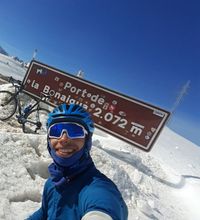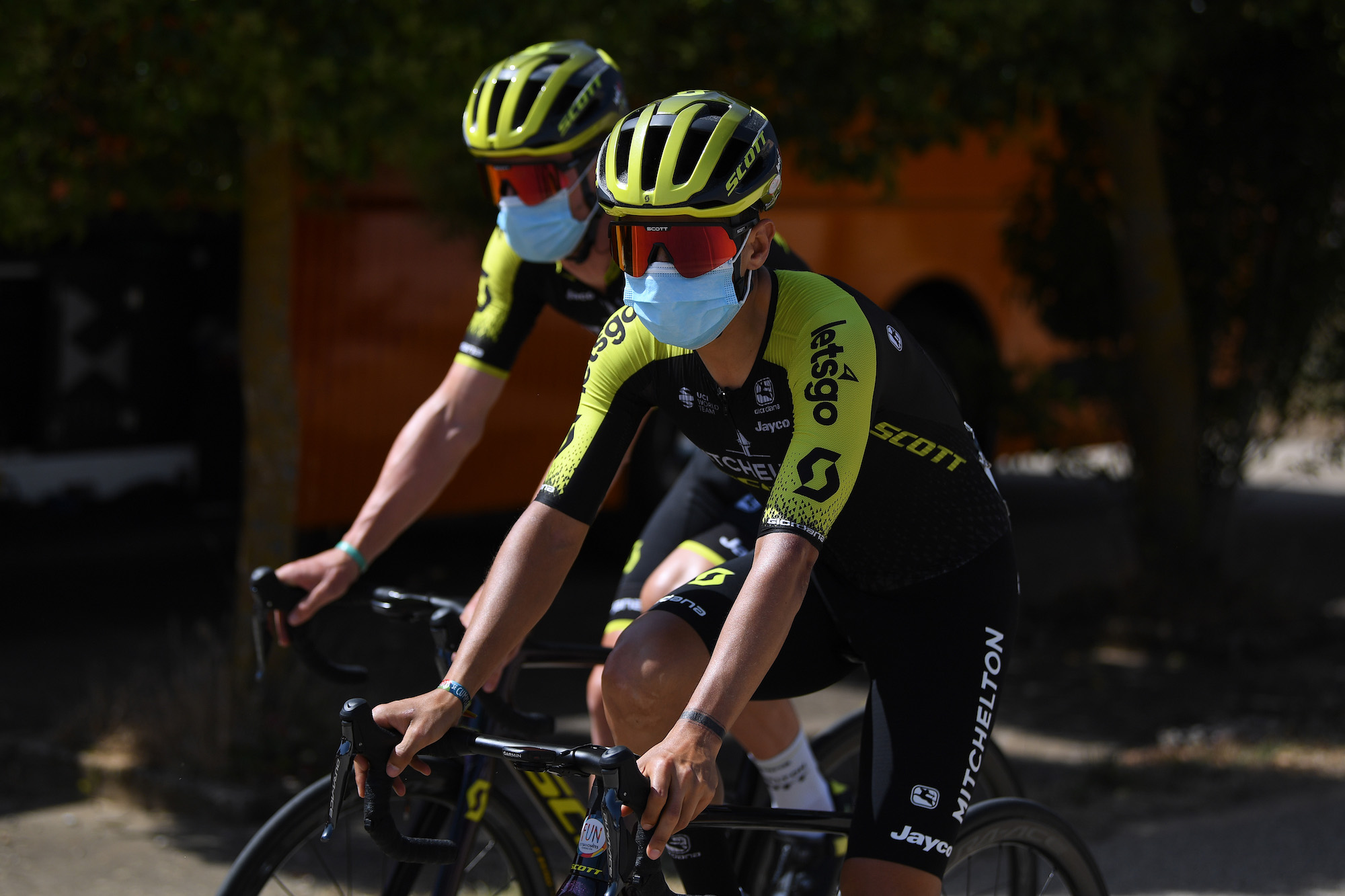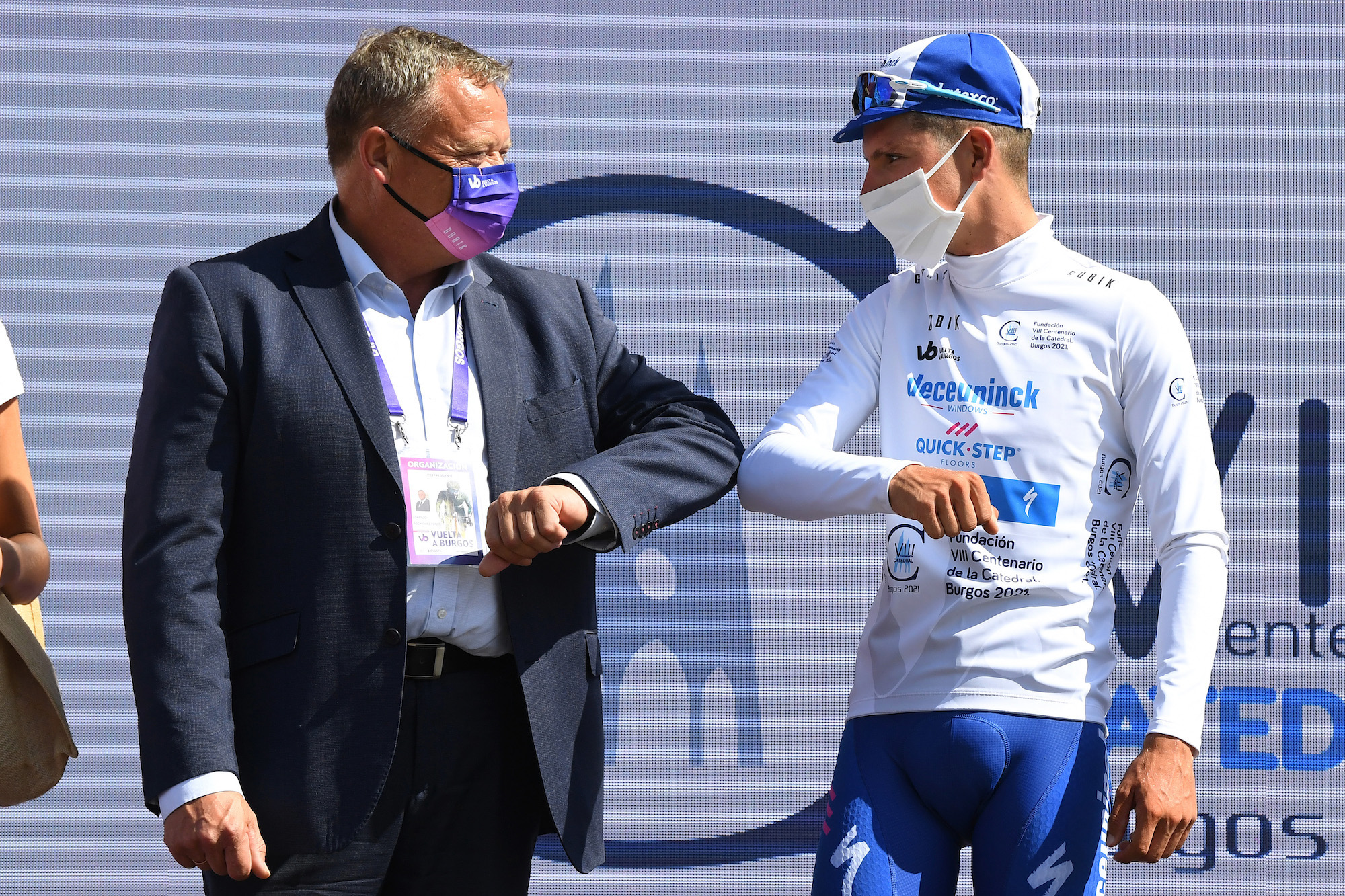Cycling's back and it feels safe - It should continue unabated
Comment: Chris Marshall-Bell is attending and reporting from La Vuelta a Burgos in Spain this week – cycling’s first big race since the coronavirus pandemic lockdown.


The latest race content, interviews, features, reviews and expert buying guides, direct to your inbox!
You are now subscribed
Your newsletter sign-up was successful
Cycling is back and in many ways, it’s really no different than before.
The routines of the day are exactly the same: the team buses arrive; riders prepare inside and a few speak to journalists; they gently ride to the team presentation past camera-snappy fans where maybe one or two speak at the team presentation; they return to the bus one last time and then head to the start line and race; after racing, it’s back to the bus, maybe a few words to the press, and then back to the hotel. Day done. Almost exactly like before.
But what is different is the caution. Riders are in masks (some team-branded, some not – almost all ending up in a bin before the start and not in their back-pocket); hand sanitiser is offered everywhere at the start (curiously absent at the finishes, though); a distance is respected between riders, team staff and everyone else; temperatures are taken; and elbow bumps are the new way of greeting and giving thanks.
Fans: there aren’t many here in Burgos this week. And those who do come are clad in masks (as has been the societal norm if not the legal advice in Spain since mid-May) and are respectful of the times – there’s no touching team bikes or equipment, even though they very easily could given the absence of road blocks or cordon (read: monetary reasons) that would prevent spectators from getting within reach of teams.
At the start and finish, it is almost impossible to maintain distance – but then it is in a bar, in a restaurant, walking along a busy street. Those who come understand the inherent risk, but no one’s hugging, shaking hands or sharing a vino tinto. Confinamiento was brutal here in Spain: no-one wants to risk being locked indoors again with a fine of €1,500 waiting for those who even dare try to exercise.
It is heartening to see people bring their own camp chairs, picnics, beers and some even ride to the finishes. Kids and adults alike still clutch onto bidons. There's even been space for a small political protest. All normality with an asterisk. * - served with a note of caution and slightly more subdued.
The latest race content, interviews, features, reviews and expert buying guides, direct to your inbox!
Ahead of the race’s start in the square at the foot of the phenomenally impressive Burgos Cathedral, I watched with intrigue and empathy as a young fan of maybe 11 constantly asked riders to sign his autograph sheet. Time and time again, he was rebuffed. Poor lad, but in these Covid-19 times, taking an obvious risk is unjustifiable. Selfies from a distance were just about possible.
Cycling is referred to as a travelling town, posing difficult logistics to comply with coronavirus rules. How can it be a bio-secure bubble like golf and cricket, for example? The simple answer is it can’t.

But the first few days of La Vuelta a Burgos have felt overwhelmingly positive and reassuring. Riders and team staff agree. Cycling feels safe.
I don’t see how it can’t continue.
Obviously, the news headlines will scream that five riders have already gone home after being in contact with a positive case. But it would be foolish to think that this wouldn’t have happened.
Both Israel Start-Up Nation and UAE Team Emirates have reacted quickly, decisively and transparently with these developments, earning respect and approval from other teams and riders (although Movistar would prefer entire teams to leave the race rather than just individual riders). There is no panic from within the peloton – it’s simply to be expected.
>>>Remco Evenepoel: ‘Nibali isn’t going to lie – I am an outside favourite for the Giro’
Riders and staff get tested frequently, and though there is the admission that the virus can enter the bubble and perhaps a rider will even give a positive test during a race at some point, there appears to be no reason why if events continue as they have done at Burgos, a dramatic and sudden race cancellation should be required.
Measures and events of the first few days have left people feeling optimistic rather than pessimistic.
If protocols remain adhered to – and why wouldn’t they be? – fans remain respectful, and lockdowns are avoided (because ultimately the virus’ spread is the determining factor), then cycling’s great big festival of racing lasting well into November can continue unabated.
A freelance sports journalist and podcaster, you'll mostly find Chris's byline attached to news scoops, profile interviews and long reads across a variety of different publications. He has been writing regularly for Cycling Weekly since 2013. In 2024 he released a seven-part podcast documentary, Ghost in the Machine, about motor doping in cycling.
Previously a ski, hiking and cycling guide in the Canadian Rockies and Spanish Pyrenees, he almost certainly holds the record for the most number of interviews conducted from snowy mountains. He lives in Valencia, Spain.
